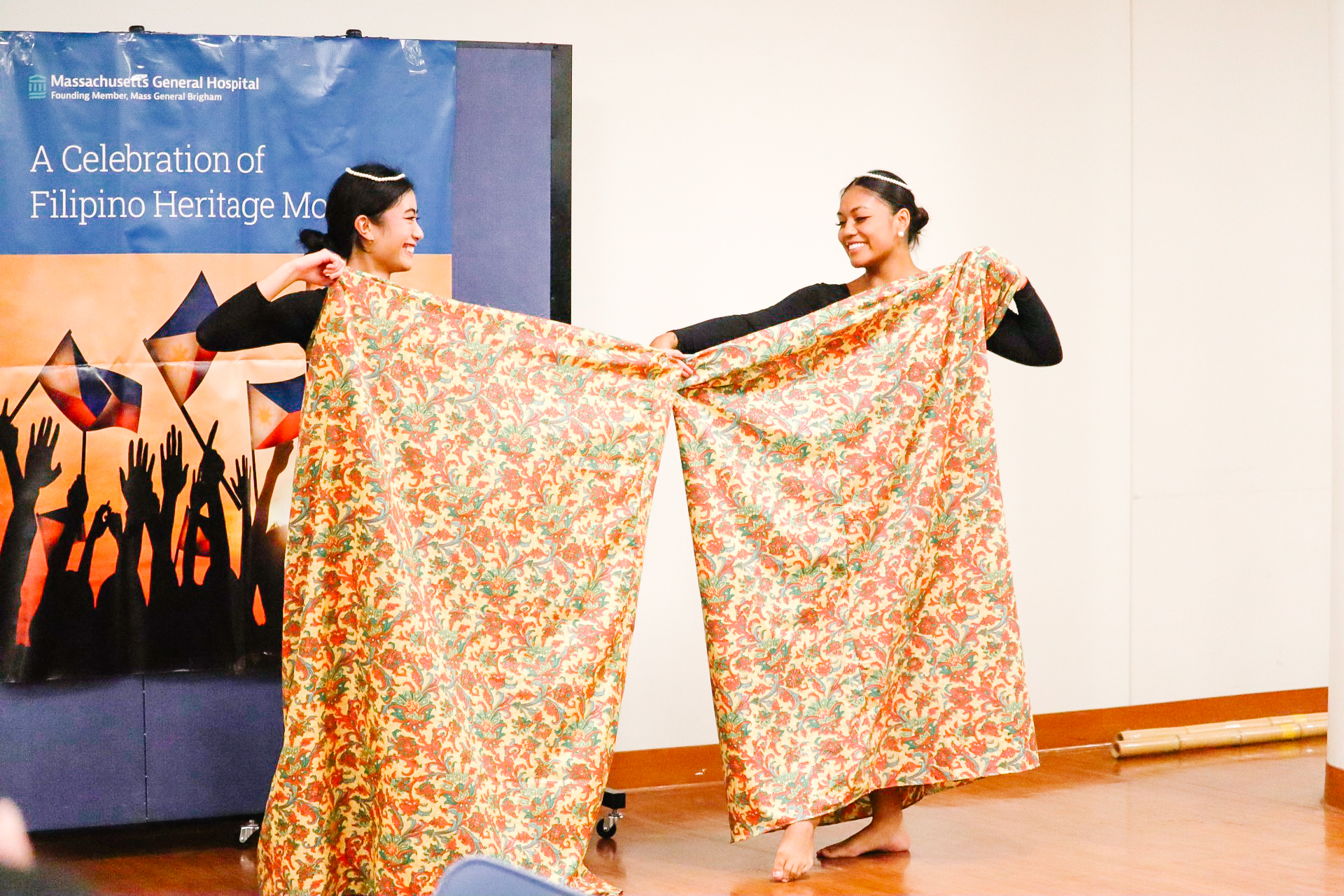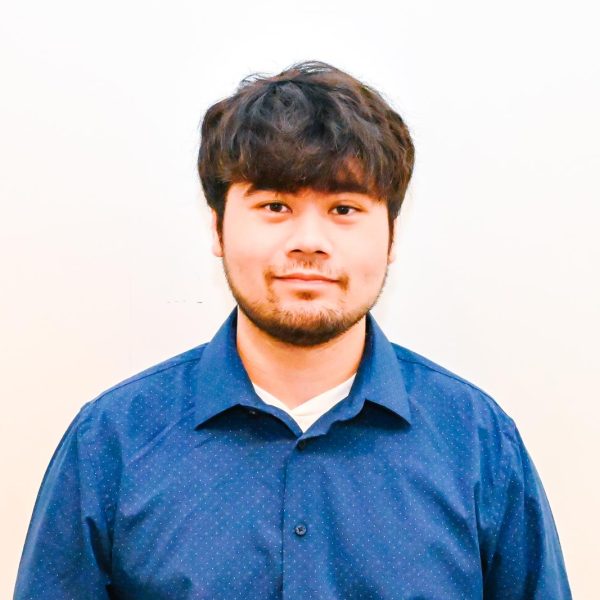October is Filipino American History Month, and UMass Boston’s student-run Filipino Organization Hoy Pinoy! has been celebrating and bringing awareness to it.
On Oct. 18, 1587, Filipinos working on Spanish ships became the first Asian people to arrive in what would eventually become America, landing at what is now Morrow Bay, California. In 2009, October was officially acknowledged by the U.S. Congress as Filipino American History Month.
Hoy Pinoy! has been making its mark this Filipino American History Month with an Oct. 11 performance at Mass General Hospital for Filipino nurses and community members. This was the second of two performances they’ve held at events this month — the first was at Harvard Square in an Oct. 6 parade for the Filipino American Festival.
At Mass General Hospital, Hoy Pinoy! performed traditional dances like Binasuan, a dance involving balancing glasses of rice wine on your head and hands; Kappa Malong Malong, a dance popular among a Filipino-Muslim tribe called the Maranaos in Mindanao that involves a large, colorful, tubular garment called a Malong; and Tinikling, a dance that involves tapping bamboo sticks on the ground while dancers weave around and in between them, mimicking the tikling, a bird native to the Philippines. In addition to the dances, Hoy Pinoy!’s Assistant Creative Director, Joelle Mae Dela Cruz, also performed a Filipino song called “Bayan Ko” on the cello.
Fasha Banson, Hoy Pinoy!’s president, expressed the significance and impact of Filipino History Month on herself and the Filipino-American community. “It’s important to have our own month because we’ve contributed in so many ways to the success of the United States, from labor strikes to the I-Hotel in San Francisco. Not to mention our unique path to the United States, our history is very important, this month is very important.”
Banson also called for more recognition at UMass Boston for the month. “We’re still asking to be represented, it’s a fight to take up more space and hopefully one day we won’t have to do that anymore,” she said.
Hoy Pinoy!’s Secretary and Creative Director, Clare Alanguilan, also spoke to the month’s personal importance and the community’s frustration about the lack of attention from the university.
“Filipino American History Month is every month for me, but it’s heightened during October,” Alanguilan said. “It’s a time where I feel closer to the people who do share the same experiences as me being born here in America, but it also allows me to connect with my family and my roots that started in the Philippines.”
Alanguilan added, “I feel like our presence is still lacking no matter the effort. We, alongside other cultural clubs, should be able to uplift each other and celebrate our cultures together, given that despite us being one of the most diverse universities in the country, they fail to acknowledge us.”
In attendance for the performance and event was Lewanda Lim, a prominent Filipino artist and activist currently living in the Greater Boston Area. Lim uses art as a way to spread knowledge about Filipino-American history — many people, both in and outside of the community, are unaware of it.
“A lot of people, even in the Filipino community, don’t know what really happened with their history, especially with American colonization and how it has impacted the culture of Filipinos, both back home and here.”
Lim praised Hoy Pinoy!’s work and expressed her happiness with seeing young Filipinos connecting with their roots.
“I’m very glad to see young people who are interested in learning about their parents’ culture and background. It’s not easy to get acquainted with their parents’ background, especially if the parents themselves are not conscious of the importance of sharing the culture that they came from,” Lim said.
Lim also talked about how colonization has caused a rift between Filipinos and their culture, and stressed the importance of Filipino American History Month.
“We harbor attitudes that hamper development of our culture in the Philippines. We always admire the culture of foreigners, but not our own. It’s important to know where we come from,” Lim said. “We’re colonized people. There’s baggage that colonization brings upon people like us, so we have to be aware and assert our own identity as Filipino-Americans.”
Banson has been holding a Filipino American History workshop series via Zoom throughout October. The first two were focused on the Filipino American Youth/Student Experience and Pre-Colonial Filipino History. The last session for this series will take place Tuesday from 8-9 p.m.
Students can register via the group’s Linktree. The last session will focus on the history of Filipino export labor and celebrate the new generation of Filipino professions.
Also on Tuesday, there will be a Story Salon in Room 126 on Wheatley’s second floor, where Filipino American students will display digital stories about their experiences from 5-7 p.m.


